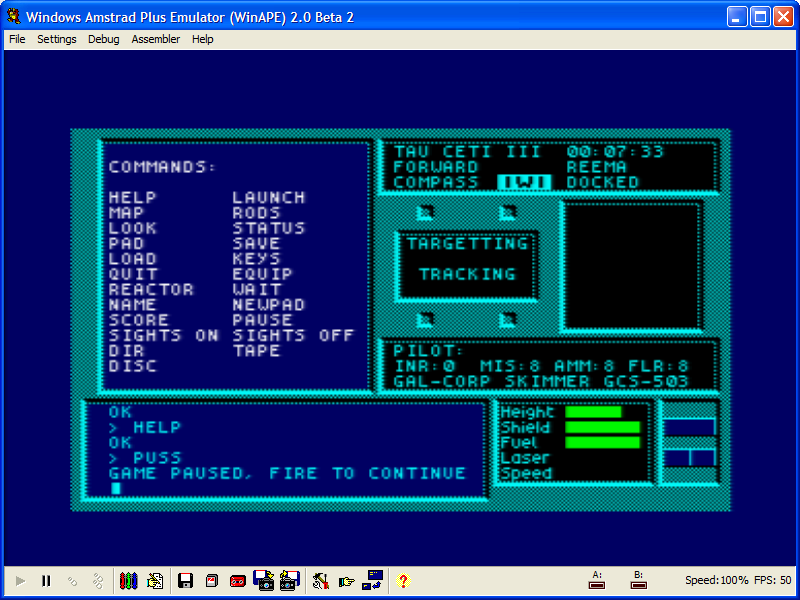There's another version I found online, but it's the DOS version. In that version, it only used the first three letters.
Typing JOYOUS CELEBRATION would be understood as JOYSTICK.
The DOS version, however, is different than the CPC version.
While the source needs to be analyzed to get the actual algorithm (I think they rolled their own), it is possible to analyze the behaviors to get a better understanding. (Clicking the pause button in the lower left brings up something. I haven't been able to actually get anything meaningful from it however.)
[A]ny one missing letter or an extra letter still allows the command to be understood
This isn't 100% true. When the command is five letters or less, it will refuse to recognize the command when the first letter is replaced with the second. In other words, QQUIP fails to be recognized as EQUIP. The command would still be recognized if any other character is substituted instead. If the command is six letters or longer, it will recognize the command either way (AAUNCH is recognized as LAUNCH).
This strange behavior can be triggered in longer words if there is another mistake. For example XTATU is fine, but TTATU fails.
A similar thing happens with the last and second to last characters. When the second to last character is substituted with the last character, the command fails. PDD and HEPP are not recognized, but POD and HEMP are fine. Interestingly enough, this does not affect 5 letter words, since EQUPP is accepted.
(I suspect these two anomalies are bugs, but they do give insight into how it works.)
Longer words can usually be recognized even when more than one character is wrong, but only in some circumstances. IIGHTS OND is recognized, but GTHS ON fails. SSIGHTSOND is recognized too.
Working from your image, I found that PUSS, and PUS pause the game. It seems that it is possible to omit two characters from a word of 5 or more letters if no extra characters are added, and each letter is no more than 1 place away from its original position.
Again, the behavior of longer words shows that letters that are slightly misplaced are more often understood than random letters. For example, E=ACTOR is understood, but MMACTOR is not.
Another strange fact is that leading spaces are ignored, but trailing (and inter-word) spaces are not. When they are not ignored, they are counted as any other wrong character is. That means ␠␠␠␠␠␠␠PAD is recognized, but PAD␠␠ and P␠A␠D are not. Like POD, P␠D will pass. Omitting a space (in SIGHTS ON or SIGHTS OFF) counts as a wrong character.
It is interesting to note that SIGHTS and SIGHTS␠ are accepted, but SIGHTS␠␠ is not.
Periods are strange; . is understood as HELP, L. is understood as LAUNCH. I think . is like a wildcard, and the list seems to be scanned left to right top to bottom (RODS before REACTOR). Note that it ignores anything after the first .; .MAP is the same as HELP.
Another interesting thing I noticed is that SIGHTS ONF,SIGHTS O, and SIGHTS OF are accepted as commands. I think they all may map to SIGHTS ON, but I have no clue how to check that.

LUis not close enough to match.UNCHisNOT UNDERSTOODbutUANCH(Lmissing,AandUthe wrong way around) launches the skimmer.